Quantum Leap: Seminar at IET HK
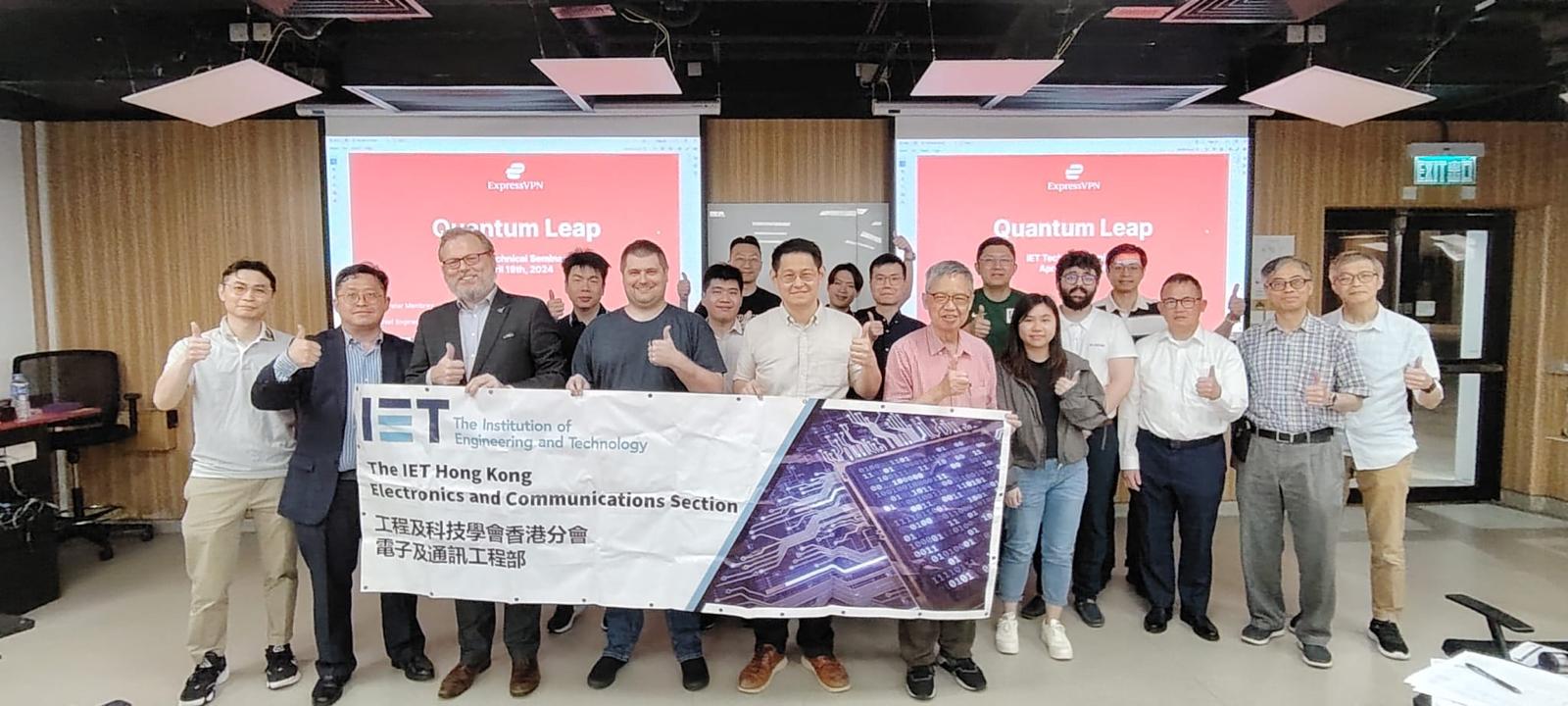
Today I had the great pleasure of giving a seminar for the Electronics & Communications Section of the IET Hong Kong. We held the seminar at The Hong Kong Polytechnic University We had a great turnout, especially for a Friday evening! It was really nice to talk to such a friendly group, and I'm hoping I'll get invited back to do more talks in the future!
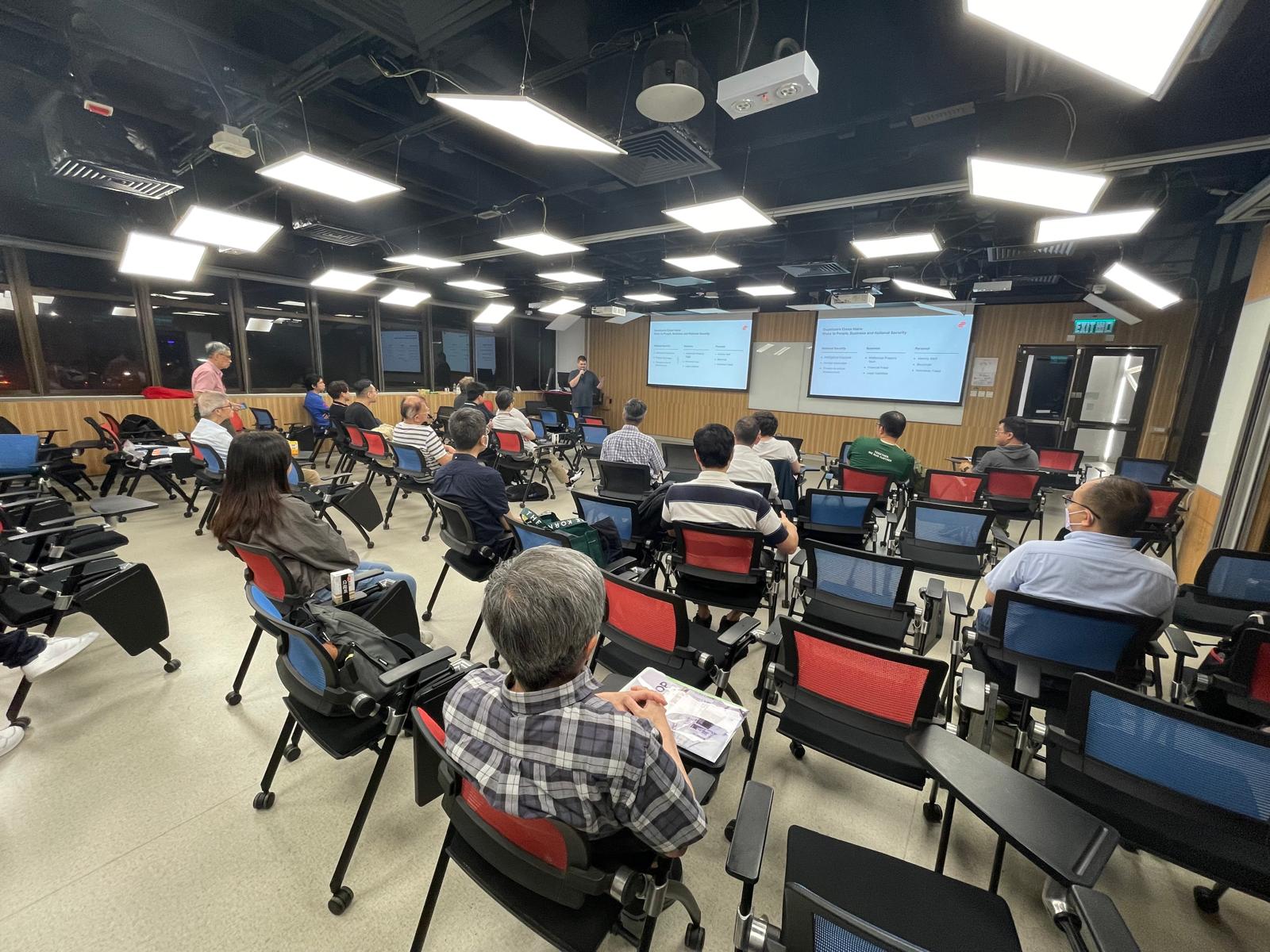
Latest updates
Although I've given a similar talk a few times now, this talk was a little bit special. It had a few new slides, but the really interesting part was I was able to cover the very recent (just ten days ago) news of a suspected algorithm that would be able to solve the LWE (Learning With Errors) problem that lattice encryption depends on. This is a huge deal as the current standard for Quantum Safe encryption is Kyber, and that's a lattice based design.
Fortunately, just 10 hours ago, a note was published updating the paper stating that there was an error found in the algorithm and the claim that it could be used to break lattice encryption was retracted.
I'll talk more about this in another blog post, and I certainly don't want to come across as being down on that particular paper or its author - a huge amount of very impressive work went into it, and just because the final piece didn't hold up, there's a huge foundation now for other people to try. More on that later!
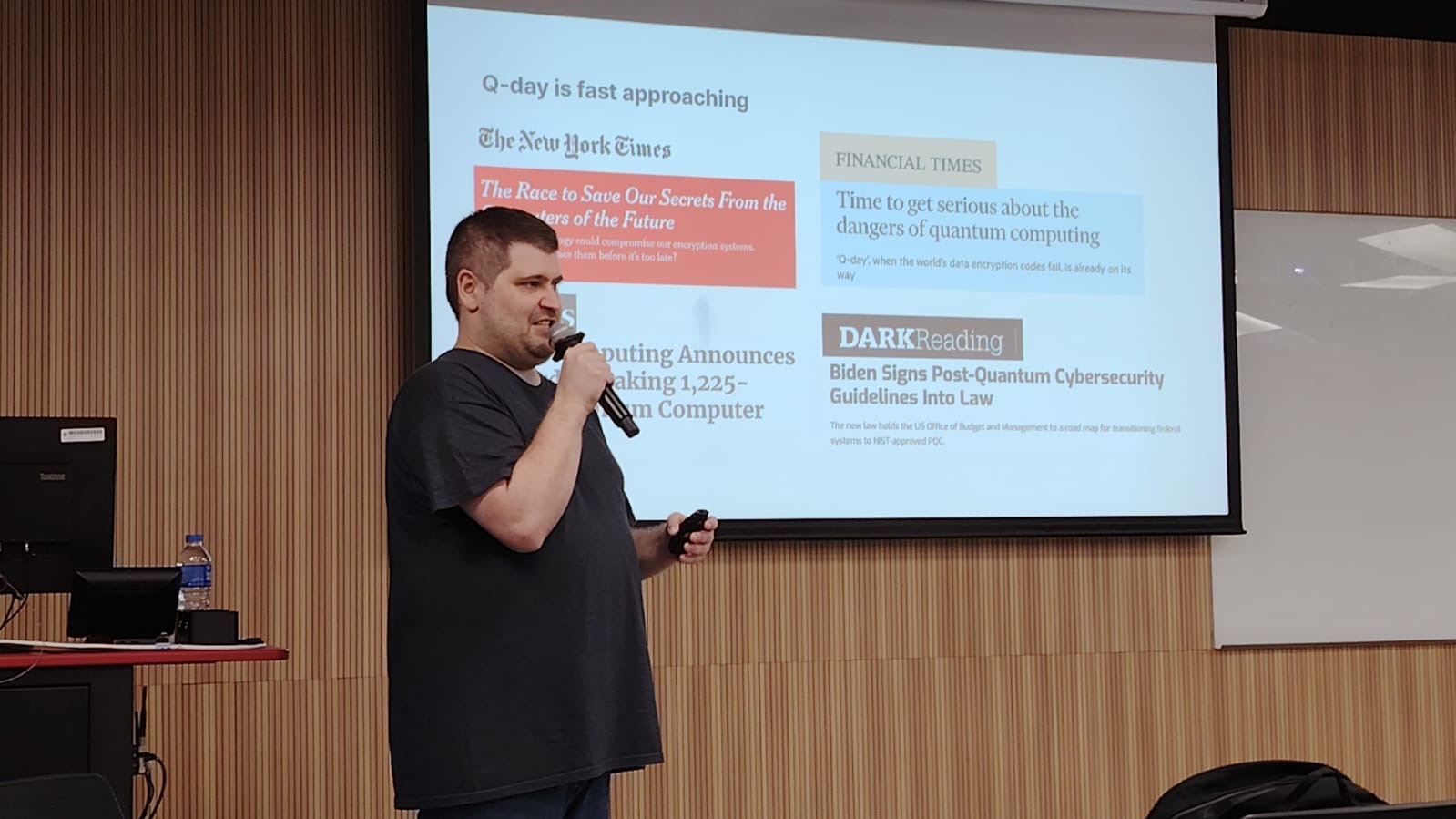
Interesting Questions
There were a number of great questions asked, and I thought I'd write up a couple here (whilst I still remember them, and still remember the answers!).
What's the power consumption like for a Quantum Computer, and how much power does it take to protect ourselves from one?
This is a great question and one I get quite a lot, though mostly they focus on whether or not their older devices will be able to use Kyber, and if not, what kind of devices can use it?
The interesting thing is, Kyber by itself (admittedly not when we're doing hybrid as we're doing both ECC and Kyber) has a lower power consumption than ECDHE. Professor Buchanan wrote about this at length in a fascinating blog post that is well worth a read.
What's the up shot of this? Well, once we're happy that Kyber is actually safe and secure, and we don't need the classical approaches any more (that is likely to take some time admittedly), we will be able to enjoy Kyber on any device that is powerful enough to use encryption today, and it will likely be faster and safe on power. So no need to get rid of your old devices just yet!
In terms of powering the actual quantum computers though, that's going to be a different story, at least for the current state of the art. Those things suck large amounts of power due to their very specific operating conditions - IBM quantum computers operate at almost absolute zero, and they had to design a special fridge to try and manage those temperatures.
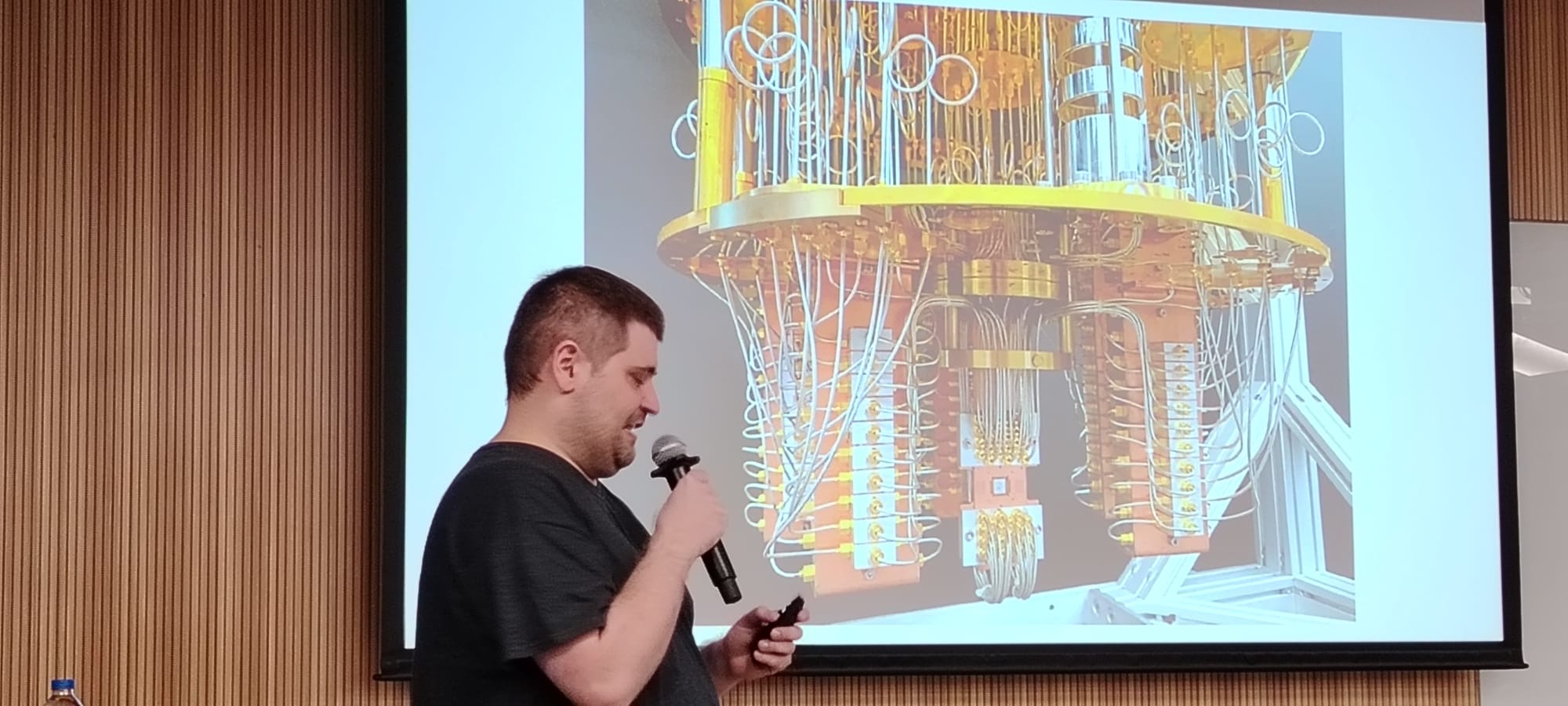
Not all quantum computers use this sort of technology, and indeed there are some very small quantum computers that you can get for use at home or in the lab, though those only have two or three qubits. Even though they are toys, they're still an amazing piece of technology and who knows where it might end up.
Are there good uses for consumer quantum computers?
This is also a good question. Im my talk I mention that most people consider quantum computers to mean the sort of super computer you'd see on Star Trek, but the reality is quite different. They offer incredible advantages yes, but only in very specific scenarios where algorithms have been developed specifically for them. They may revolutionise particle physics and material science, but they're not going to help us encode video, stream it, or watch it. For that, classical computers are going to continue to rule supreme.
So will we get quantum computers in our pockets? I think it's unlikely as I just don't see a good use case for it. Quantum technology is expensive, and you'd need to put in a lot of capital to try and bring it to consumers - but what would they do when they get it?
Instead what I think we'll see are specific quantum boards that come down massively in price, but perhaps aren't quite cheap enough for your average person to pick one up. Again, I don't think this will be a problem as most people won't actually want one.
For those that do, there's for sure going to be quantum as a service made available by the big cloud providers!
Wrapping up
Once again, it was great to be invited to give a seminar and share with my fellow engineers. I'm looking forward to getting to do it again!
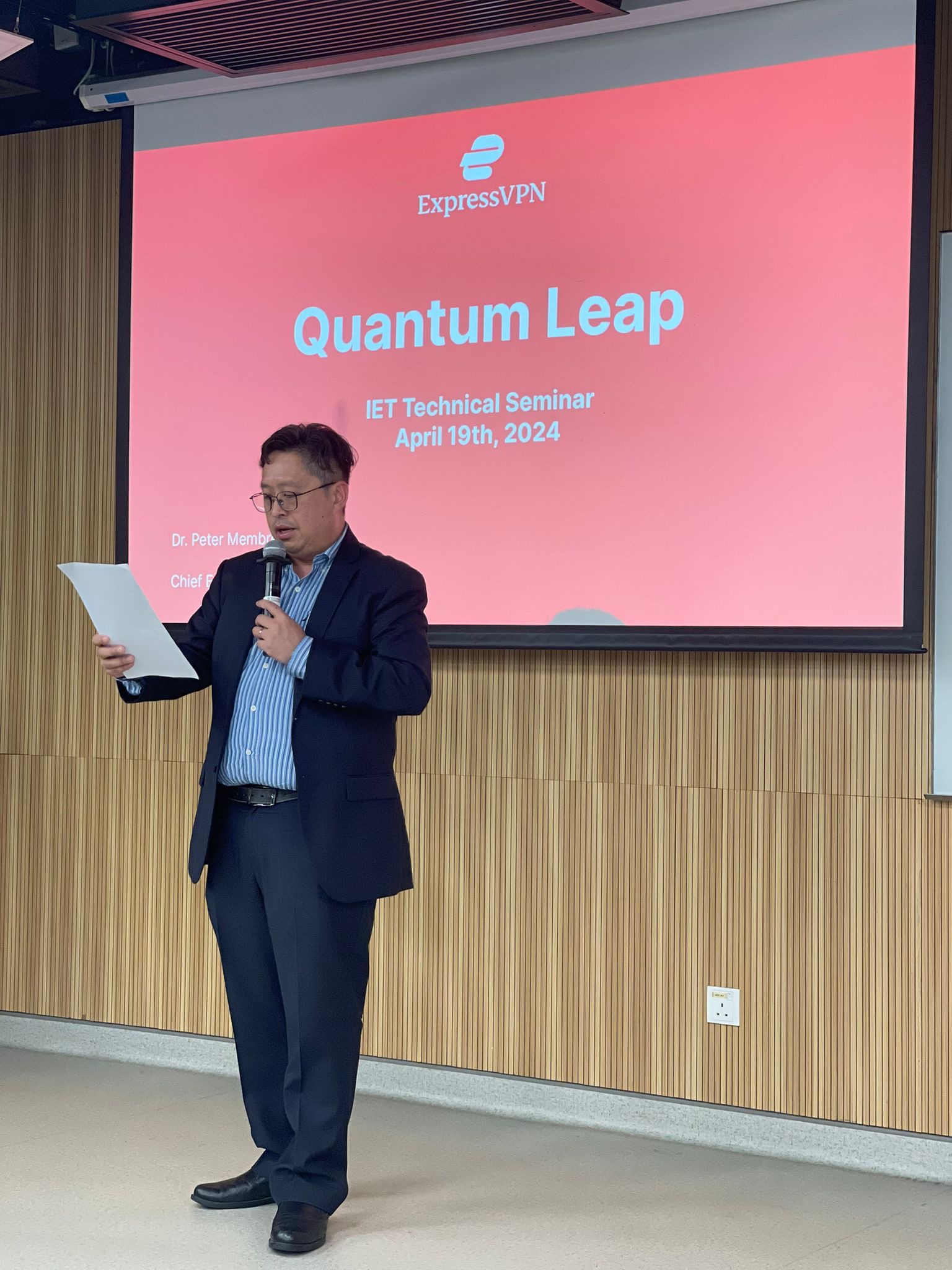

Peter Membrey is a Chartered Fellow of the British Computer Society, a Chartered IT Professional and a Chartered Engineer. He has a doctorate in engineering and a masters degree in IT specialising in Information Security. He's co-authored over a dozen books and a number of research papers on a variety of topics. These days he is focusing his efforts on creating a more private Internet, raising awareness of STEM and helping people to reach their potential in the field.